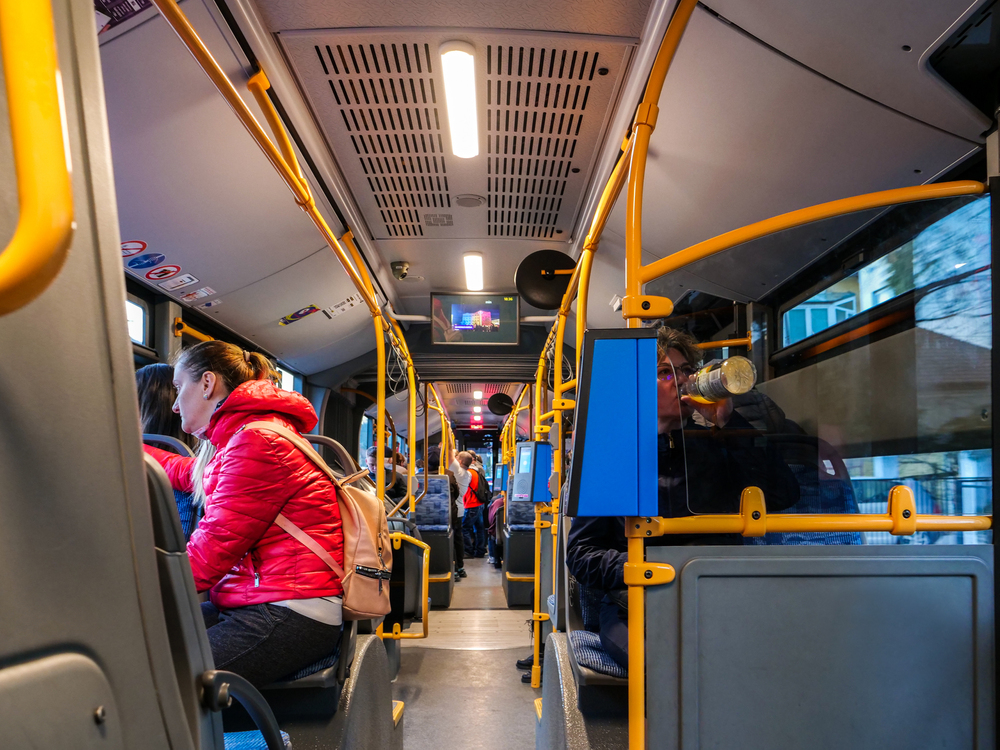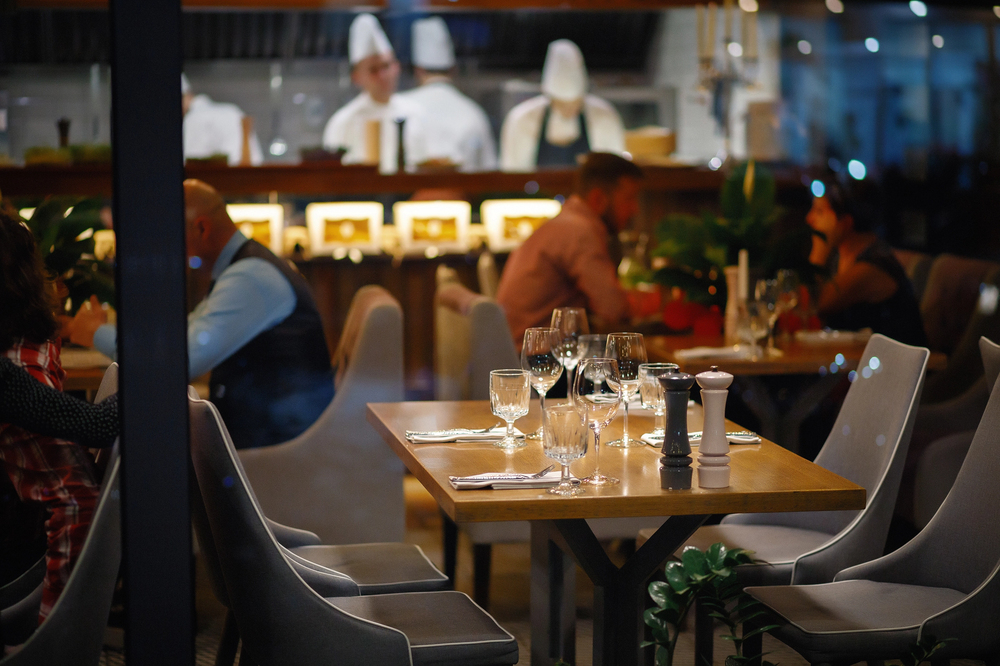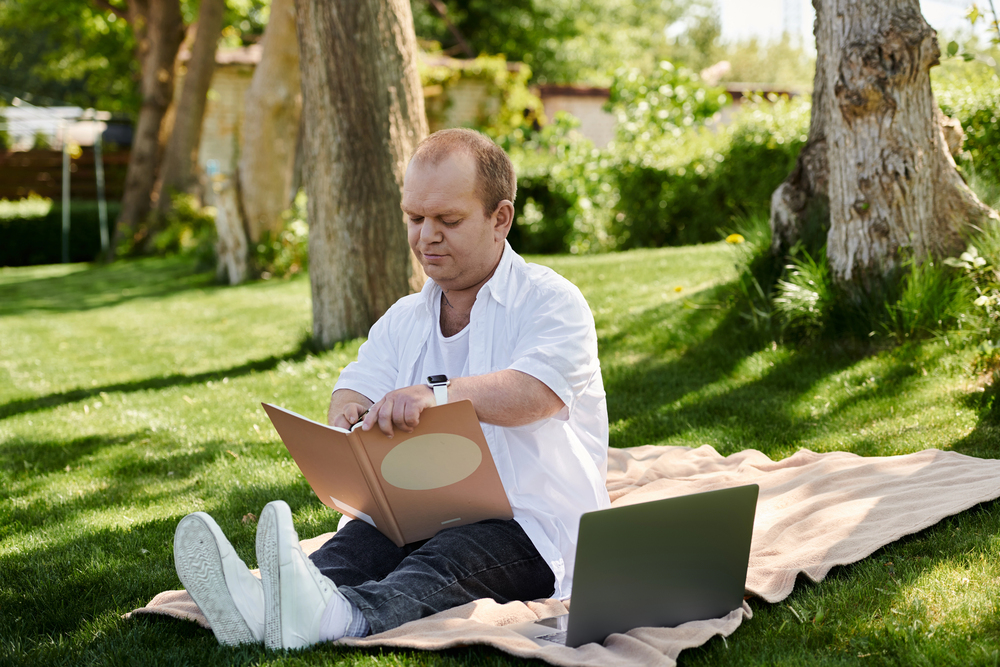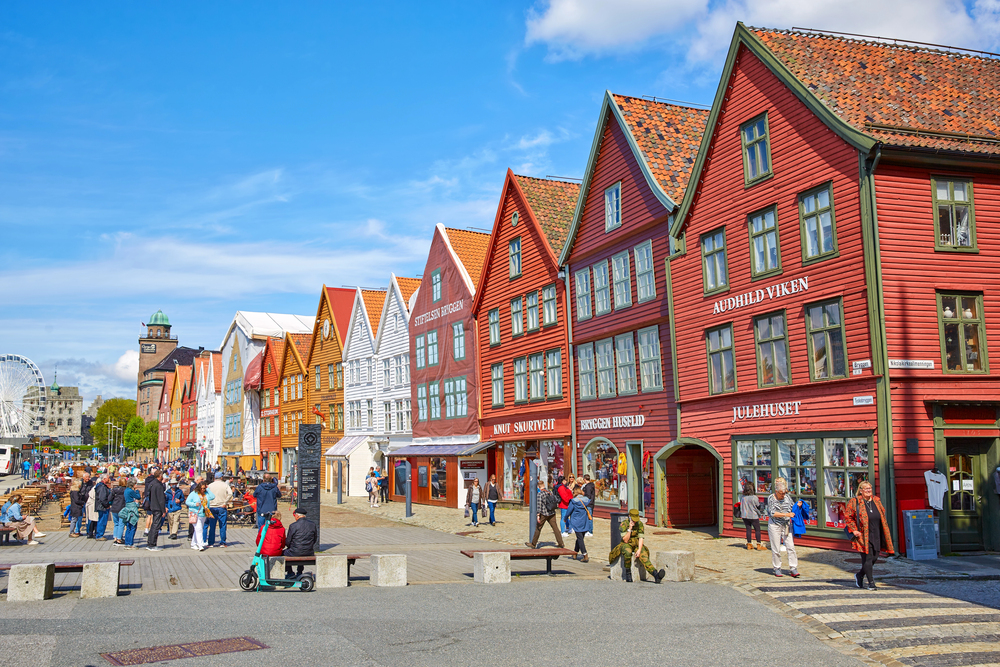Norway might be famous for its stunning fjords and northern lights, yet there’s another aspect of Norwegian culture that catches many visitors off guard: the unspoken social rules that create an invisible barrier between strangers. These aren’t written laws or official guidelines. They’re deeply ingrained cultural norms that Norwegians follow almost instinctively, though understanding these rules helps explain why making small talk with a random Norwegian can feel like trying to start a conversation with a friendly statue.
Norwegians have perfected the art of polite distance. Their social customs reflect a culture that values personal space, privacy, and quietude above casual interaction. Here is a list of 16 Norwegian social rules that create this fascinating dynamic of respectful separation.
Don’t Sit Next to Strangers on Public Transport

Norwegian public transportation operates on a simple principle: leave as much space as possible between yourself and other passengers. There’s an empty seat available? Norwegians will choose it over sitting next to someone they don’t know. This isn’t rudeness — it’s considered respectful behavior that acknowledges everyone’s need for personal space. Many Norwegians would rather stand for an entire bus ride than squeeze into a seat next to a stranger when other options exist.
Avoid Eye Contact with Strangers

Making prolonged eye contact with strangers is considered intrusive in Norwegian culture, though a glance remains acceptable. Staring or maintaining eye contact for more than a second or two makes people uncomfortable. This rule extends to elevators — Norwegians will study the floor numbers, their phones, or anything else rather than make eye contact with fellow passengers. It’s like an unspoken agreement that everyone’s invisible bubble remains intact.
Keep Conversations Quiet in Public

— Photo by Whiteaster
Loud conversations in public spaces are frowned upon, regardless of whether you’re talking to someone in person or on the phone. Norwegians speak in hushed tones when they’re out and about, treating public spaces like libraries where everyone deserves peace. If you’re used to animated discussions on street corners or boisterous phone calls on trains, you’ll quickly notice how this behavior stands out in Norway. The cultural preference leans heavily toward maintaining a calm, undisturbed environment for everyone.
Don’t Ask Personal Questions

Personal questions about income, family situations, or private matters are off-limits when talking to Norwegian acquaintances or strangers. Even questions that might seem innocent in other cultures — like asking about someone’s job or weekend plans — can feel invasive to Norwegians. They prefer to keep conversations surface-level until a genuine friendship develops over time. Think of it like peeling an onion: you only get to the deeper layers after proving you’re trustworthy and worth the emotional investment.
Respect the Invisible Queue

— Photo by joasouza
Norwegians are masters of the invisible queue, especially at bus stops and in stores. Even when there’s no physical line marked on the ground, people naturally form an orderly sequence based on arrival time. Cutting in line or pushing ahead is considered extremely rude and will earn you disapproving looks. Though this system works because everyone understands and respects the unspoken rules of fairness and patience.
Don’t Interrupt or Talk Over Others

Interrupting someone mid-sentence is considered highly disrespectful in Norwegian culture. Conversations tend to have natural pauses where people wait for others to finish their thoughts before responding. This creates a slower, more thoughtful pace of communication that can feel foreign to people from cultures where overlapping speech and quick exchanges are normal — yet Norwegians value being heard and giving others the same courtesy.
Keep Your Voice Down in Restaurants

Restaurant conversations in Norway happen at a volume that wouldn’t wake a sleeping cat at the next table. Loud laughter, animated storytelling, or raising your voice to get someone’s attention across the room goes against Norwegian dining etiquette. The atmosphere in most Norwegian restaurants feels more like a library than a party — with diners speaking in considerate tones that don’t intrude on other people’s meals. Even celebration dinners maintain this respectful volume level.
Don’t Compliment Strangers

Random compliments to strangers about their clothing, appearance, or belongings can make Norwegians uncomfortable rather than pleased. What might be considered friendly behavior in other cultures can come across as overly familiar or even suspicious in Norway. Norwegians prefer to keep interactions with strangers minimal and practical — save the compliments for people you actually know, where the gesture will be appreciated rather than awkward.
Maintain Physical Distance

Personal space in Norway extends much further than in many other cultures. Standing too close to someone while talking, accidentally brushing against someone, or crowding into their personal bubble is considered intrusive. Norwegians maintain about an arm’s length distance during conversations — and this space increases when talking to strangers. It’s like everyone carries an invisible force field that others instinctively respect.
Don’t Ask for Help Unless Necessary

Asking strangers for help or directions is generally acceptable, though Norwegians expect you to try solving problems yourself first. They’re helpful when approached politely, but the cultural expectation is that you’ve exhausted your own resources before bothering someone else. This isn’t unfriendliness; it’s a cultural value that emphasizes self-reliance and respect for others’ time. Most Norwegians will gladly help when genuinely needed, but they appreciate when the request is truly necessary.
Keep Small Talk to a Minimum

Small talk with strangers isn’t a Norwegian strong suit. Most people prefer to skip it entirely. Comments about the weather, casual observations, or friendly chitchat with cashiers and service workers are kept brief and functional. Norwegians aren’t being rude; they simply don’t see the point in superficial conversation with people they don’t know well. Silence is perfectly comfortable and doesn’t need to be filled with meaningless chatter.
Don’t Touch or Pat People

Physical contact with strangers or acquaintances is strictly limited to formal handshakes in professional settings. Casual touching, patting someone on the back, or any other physical contact is considered inappropriate and invasive. Even among friends, Norwegians are more reserved with physical affection compared to many other cultures. The concept of personal space extends to keeping your hands to yourself unless there’s a specific, necessary reason for contact.
Avoid Controversial Topics

Discussing politics, religion, or other potentially divisive topics with strangers or casual acquaintances is generally avoided. Norwegians prefer to keep conversations neutral and non-confrontational, especially with people they don’t know well. This rule helps maintain the peaceful, conflict-free environment that Norwegian culture values, though even when they have strong opinions, most Norwegians will keep them private until they’re in trusted company.
Don’t Overshare Personal Information

Sharing personal details, problems, or intimate information with strangers or new acquaintances is considered inappropriate and uncomfortable. Norwegians are private people who believe personal matters should stay personal until meaningful relationships develop. This includes everything from health issues to relationship problems to financial concerns, while the cultural norm is to keep these topics within your close circle of family and trusted friends.
Respect Quiet Hours

Many Norwegian apartment buildings and neighborhoods have unofficial quiet hours, typically in the evenings and on Sundays. During these times, noise levels should be kept to a minimum out of respect for neighbors. This includes everything from loud music and television to vacuum cleaning and home repairs, yet the rule reflects the broader Norwegian value of considering how your actions affect others and maintaining peaceful living environments.
Don’t Be Overly Enthusiastic

Excessive enthusiasm, loud expressions of excitement, or dramatic emotional displays in public are considered attention-seeking and inappropriate. Norwegians prefer calm, measured responses even to positive events or experiences. This doesn’t mean they don’t feel emotions deeply; they simply express them more privately and subtly. Think of it as emotional minimalism: the feelings are there, though the public expression is dialed way down.
How Distance Became Norwegian DNA

— Photo by dibrova
These social rules didn’t develop overnight. They’re the result of centuries of cultural evolution shaped by harsh winters, small communities, and the practical need to coexist peacefully in challenging conditions. When your ancestors spent long, dark winters in close quarters, developing systems to respect personal space and avoid conflict became essential for survival. Today’s Norwegian social customs carry forward this wisdom, creating a society where everyone can maintain their dignity and peace of mind, though these rules might seem standoffish to outsiders. They’ve created one of the world’s most trusting and harmonious societies, where people feel safe and respected in their daily interactions.
More from Travel Pug

- 20 Best Beach Towns in the Carolinas
- 13 Destinations Where Tourists Regularly Regret Their Trip
- 20 Things You Actually Get in First Class
- 20 Small Airports With Aviation Museums
- 20 Places in the U.S. That Are Perfect for a Reset Trip
Like Travel Pug’s content? Follow us on MSN.
